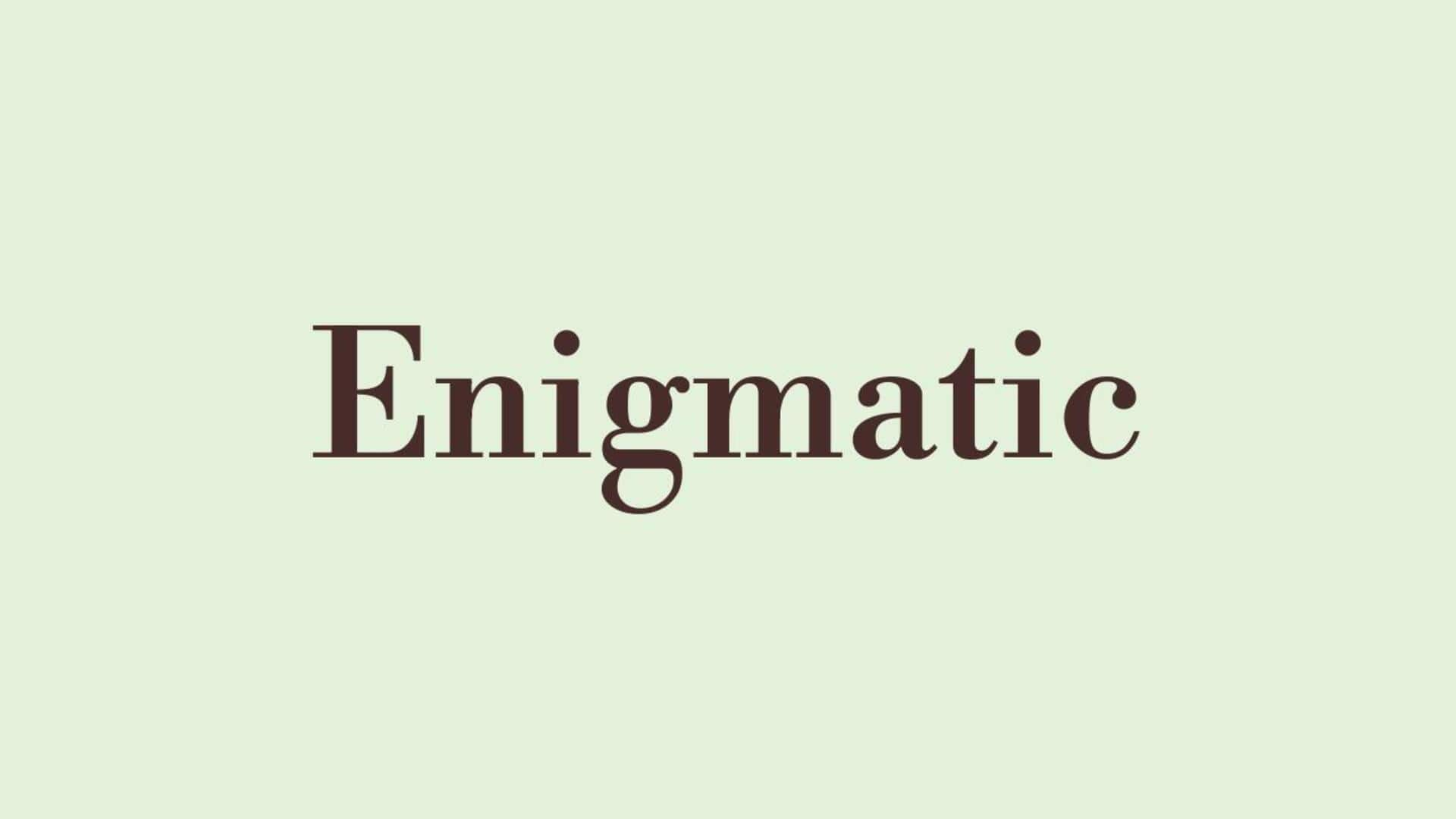
Word of the Day: Enigmatic
What's the story
"Enigmatic" describes something mysterious, puzzling, or difficult to understand. It can refer to people who seem secretive, situations that are hard to explain, or expressions that hide true feelings. People often use "enigmatic" when something feels like a riddle or leaves others guessing about its real meaning.
Origin
Origin of the word
The word "enigmatic" comes from the Greek word ainigma, which means "riddle." From there, it entered English in the 16th century and has since described anything mysterious, puzzling, or difficult to understand.
Synonyms
Synonyms for 'enigmatic'
Some common synonyms for "enigmatic" include mysterious, puzzling, cryptic, obscure, secretive, perplexing, and inscrutable. These words highlight the sense of something hidden, unclear, or difficult to fully understand.
Usage
Sentence usage
Let's see how to use this word in different contexts: "She gave him an 'enigmatic' smile that left him curious." "The ancient manuscript contained an 'enigmatic' message." "His behavior was so 'enigmatic' that no one could predict what he would do next."
Writing
Why use the word
Using "enigmatic" makes descriptions more interesting by adding a sense of mystery or hidden meaning. It helps create curiosity and intrigue in both writing and conversation. Whether talking about people, expressions, or situations, "enigmatic" is a strong word to show something unclear or mysterious.